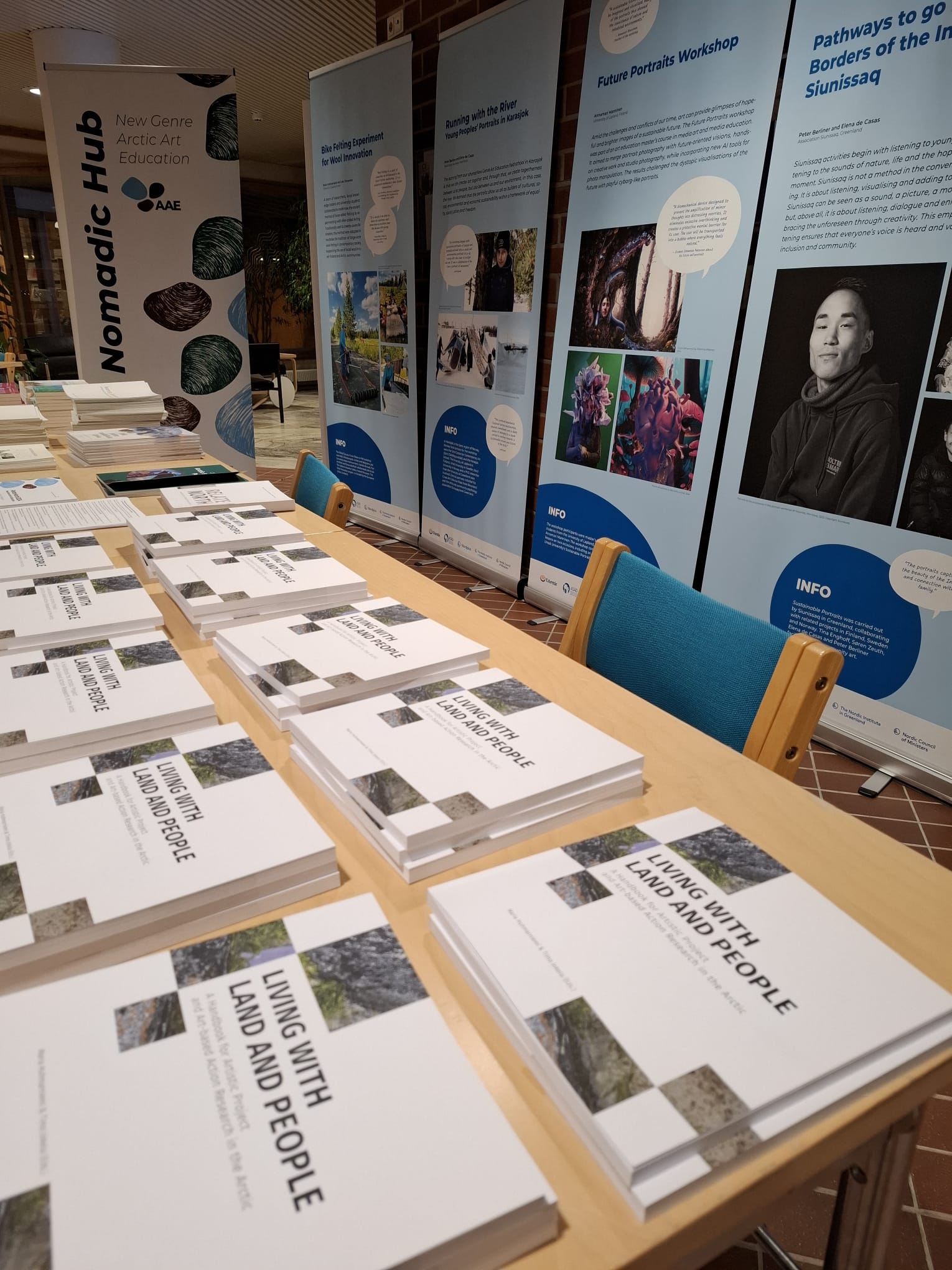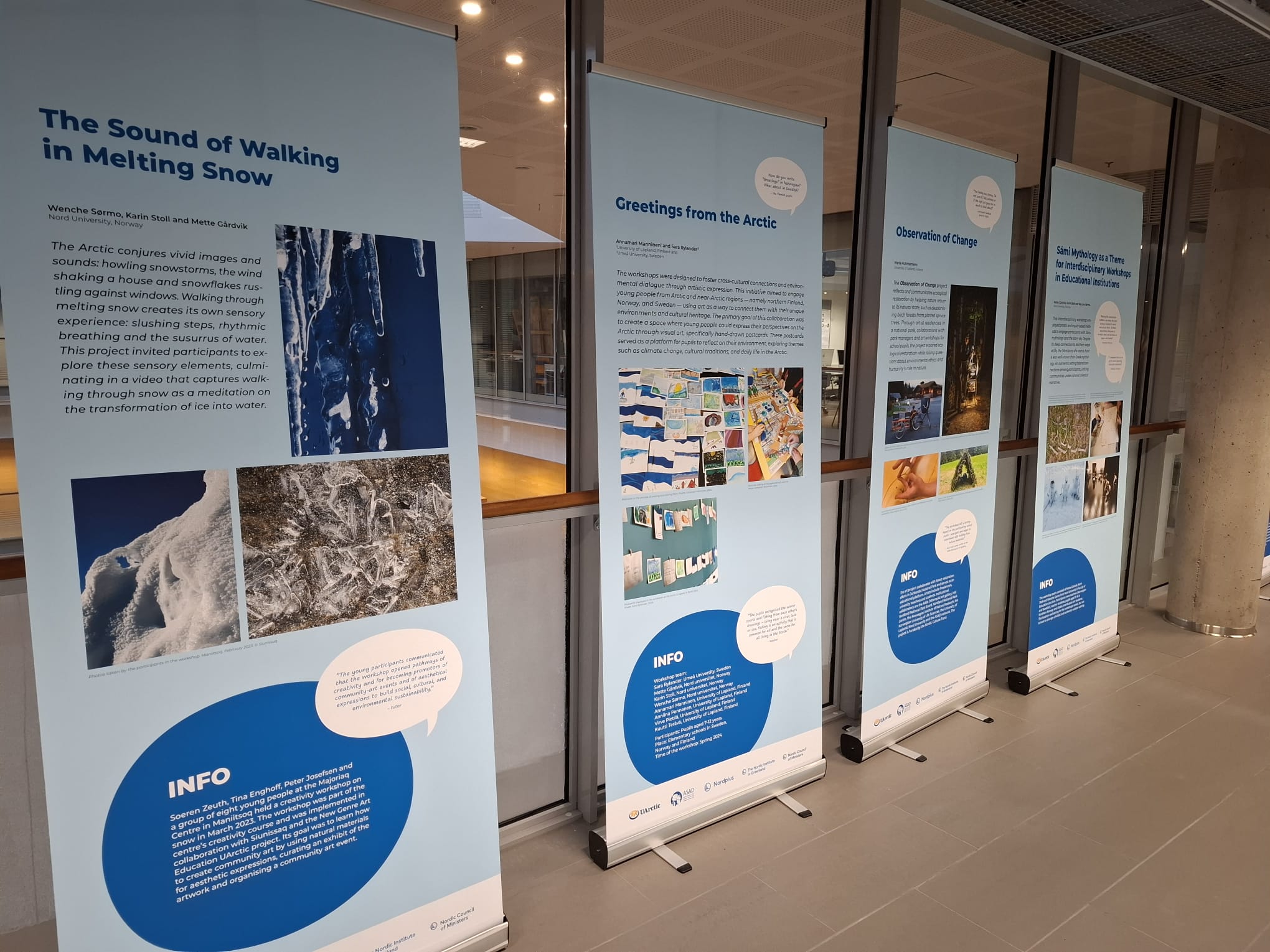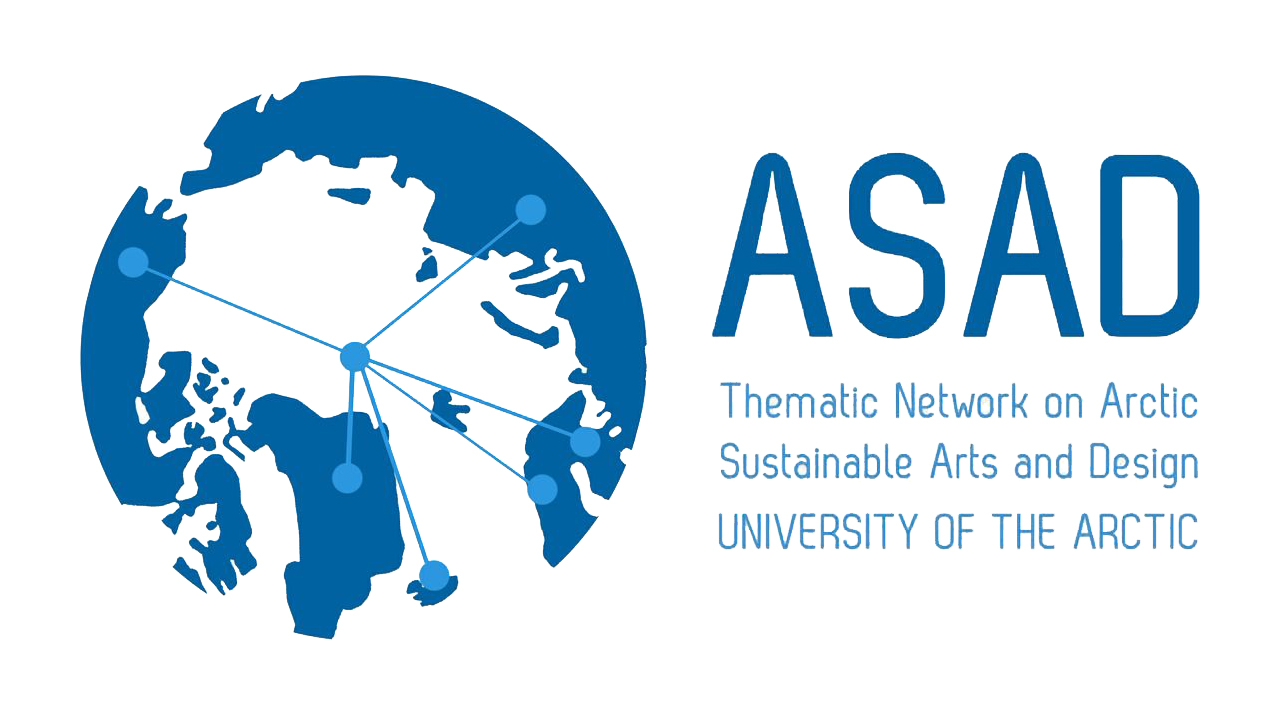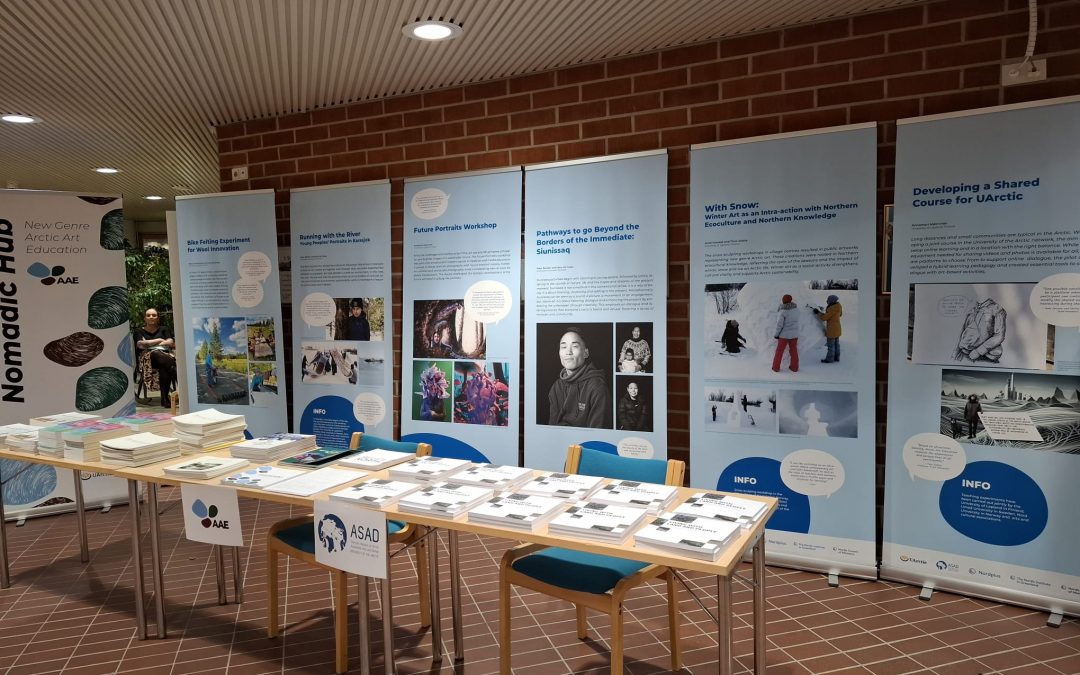The FERA Conference 2025 took place in Rovaniemi under the theme Education and Research – Towards a Sustainable and Global Future. The conference invited presenters to consider how the sustainability transition requires new and creative thinking, as well as innovative solutions from education and research, to lay the foundation for a sustainable society. Participants were encouraged to discuss current themes that, collectively, can help build more sustainable and global future.
The ASAD network’s collaborations and joint initiatives were extensively represented at the conference. An exhibition documenting new genre Arctic art education was showcased, publications were shared, and several talks were presented.
A symposium on new genre Arctic art education was included in the conference program. Mirja Hiltunen and Maria Huhmarniemi presented the framework and its theoretical foundation, while researchers Korinna Korsström-Magga, Suvia Autio, and Niko Väistö discussed practical applications. Korsström-Magga presented documentation of art education activities in Vuotso carried out by the Rievdan project.
Maria Huhmarniemi presented at the conference with a talk titled “Art with Arctic Land and Communities.” Her presentation reflected on the role of Arctic art and art education within the broader sustainability transformation, examining strategies, methods, and practices in arts education that respond to urgent ecological, cultural, and social challenges. She outlined principles of action for decolonising art and education in the Arctic, foregrounding approaches that honour heritage and community voices.
One of the presentations was co-authored by collaborators from the University of Lapland and Nord University: Annamari Manninen, Mette Gårdvik, Karin Stoll, and Wenche Sørmo. Their presentation, titled “Arctic Teacher Education in Collaboration – Creating Dialogues for Learning with Art, Science, and Communities,” introduced a shared hybrid university course on Arctic art education for teacher students from Sweden, Norway, Finland, and Greenland. The collaboration aimed to foster dialogue among Arctic communities, children and youth, teacher students, professors, and local actors in the cultural and educational sectors. The partner universities sought to integrate contemporary art practices with Northern knowledge and traditions, enabling the examination and experience of sustainability issues from the perspectives of Arctic communities and places.
Presentations on new genre Arctic art education were also given in Finnish. Timo Jokela discussed project pedagogy and art-based action research, also disseminated in the Living with Land and People handbook, while Mirja Hiltunen presented how communities expand in art education.
The FERA Conference is arranged annually by the Finnish Educational Research Association (FERA). Its main aim is to promote educational research and collaboration among researchers in the field.
Presentations by the ASAD collaborations included results from the following projects: Lessons of the Land, Living in the Landscape Summer School 2023-2025: Hybrid Development Project, and the Art-based Sustainability in the Arctic project.
More information:
Rievdan: https://blogi.eoppimispalvelut.fi/rievdanmuutos/
Living with Land and people: https://urn.fi/URN:ISBN:978-952-337-505-5
New Genre Arctic Art Education: https://blogi.eoppimispalvelut.fi/ngaea/



